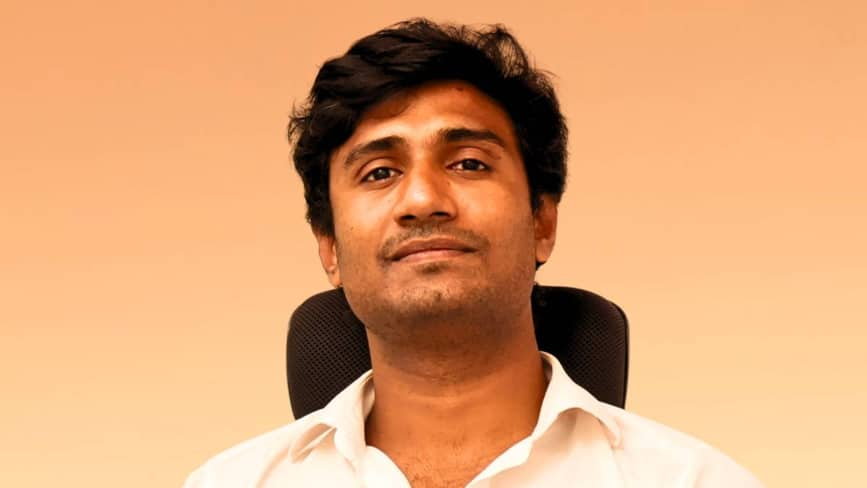India’s malnutrition crisis persists despite progress. Community-driven, women-led solutions like TREEI’s fortified foods show promise. Sustainable corporate partnerships and integrated nutrition education are key to lasting, scalable impact.

Tanveer Inamdar , Founder and MD, TREEI Innovative Foundation
India faces a silent emergency of malnutrition that persists despite economic progress. Millions in rural villages, urban slums, and tribal regions remain trapped in cycles of poor health. The National Family Health Survey reveals a disturbing truth; 26 percent of women battle mild anemia, 29 percent moderate anemia, and 3 percent severe anemia. These numbers represent lack of effective ground implementation, missed potential, and a nation struggling to nourish its people despite having a rich tradition of nutrition science and community health strategies.
In rural India, 50% of pregnant women are anemic (Ministry of Health and Family Welfare, 2022), while 38% of children under five suffer from wasting - low weight-for-height (NFHS-5). Dietary diversity remains alarmingly poor, with only 12% of infants receiving adequate nutrition (UNICEF State of the World's Children, 2022). Urban slums show equally grim trends; 42% of impoverished urban children experience stunted growth (NFHS-5), alongside rising diabetes and hypertension rates linked to 28% of adults consuming processed foods daily (ICMR Dietary Guidelines, 2023).
Rural India presents a paradox. Traditional diets of millets and greens suggest health, but micronutrient deficiencies are widespread. Minerals like Iron, zinc, and magnesium, though needed in small amounts, are conspicuously absent, weakening immunity and draining energy. For women, this deficit is particularly damaging. Monthly iron loss through menses and hormonal shifts, leads to chronic fatigue, irregular periods, and breathlessness, conditions often dismissed as normal but which steal education, livelihoods, and equal opportunity.
Urban slums face a different challenge. Higher wages collide with poor dietary choices. Government schemes like Take Home Ration and Mid-Day Meals fill stomachs but not nutritional gaps. Migrant communities, lacking documentation, slip through safety nets. The result is a generation fed but undernourished, their plates full but their bodies starved of essential nutrients.
The TREEI Foundation's work in Maharashtra’s underserved communities exposed malnutrition's brutal ripple effects. Girls skipped skill training due to exhaustion; women abandoned their household businesses, too weak to continue. Health camps revealed staggering realities; 70 percent of women were anemic, 40 percent of adolescent girls lacked awareness of menstrual hygiene, and over half of households did not understand their nutritional needs.
National data compounds the tragedy. Urban poor women consume fried foods and aerated drinks at alarming rates. This is not hunger of quantity but of quality, a feast of empty calories breeding diabetes and hypertension.
India's nutrition battle has seen countless initiatives, but isolated efforts yield slow progress. The National Rural Health Mission proved that infrastructure without community engagement fails. Health centers were built but unused; awareness campaigns launched but
lacked community response. The lesson is clear; lasting change requires people, not just policies.
Community programs show promise, SHG-led nutrition projects in Odisha reduced child anemia by 15% in 2 years (World Bank, 2021). Contrast this with top-down efforts NRHM’s rural health centers remain 30% underutilized due to lack of community trust (NHM Report, 2023).TREEI's Nutrition for All initiative embodies this. Local women's Self-Help Groups produce fortified Mahua ladoos, iron rich supplements distributed to over 2,000 women and girls in slums and tribal schools.The innovative recipe and data was based on facts from earlier researches and led to publication of research paper “Effectiveness of Mahua ladoo consumption in prevention of Anaemia”, by taking tribal comments and insights in consideration. This approach creates empowerment. When women craft the solution, they own it. This is how change spreads, not from above but from within the community.
When corporates align their social investments with national priorities and global sustainability targets, they bridge the gap between policy and practice.Corporate Social Responsibility must evolve from one-time donations to sustainable partnerships. Businesses can amplify grassroots efforts by funding local production, sharing expertise, and aligning with development goals. Bringing back our traditional foods, nutrition programs linked to community ownership, and women led food enterprises scaled nationally represent meaningful investments in a healthier, more productive India.
The solution to India's nutrition crisis lies in three pillars: education, empowerment, and integration. Teach families why nutrition matters. Train women to grow, cook, and demand nourishing food. Weave nutrition into healthcare, livelihoods, and education.
Malnutrition is a complex challenge, but history shows that when communities lead, transformation follows. The question is no longer whether India can overcome this crisis, but whether we will finally trust our people to lead the way. What makes this moment different is the convergence of three powerful forces: grassroots innovation that has proven its effectiveness, corporate partnerships that can scale solutions sustainably, and digital tools that enable last-mile reach. The next decade must focus on creating ecosystems where these elements interact dynamically where nutrition and community wellness targets are met not through bureaucratic mandates but through community ownership. The nutrition gap is ultimately a power gap, one that can only be bridged when every Indian has both the knowledge to demand better nutrition and the means to access it. The time for isolated programs has passed; the era of integrated, community-powered nutrition security has begun.
By continuing you agree to our Privacy Policy & Terms & Conditions
